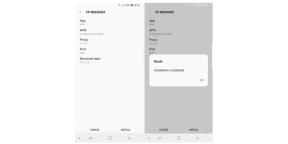Modern testing theory for the analysis of achievement tests - course 35,000 rub. from HSE, training 13 days, Date: June 26, 2023.
Miscellaneous / / November 28, 2023
Achievement tests are an integral part of educational practice and personnel selection. They allow students or job candidates to be objectively compared in terms of their educational achievements or cognitive abilities. However, in order to draw reasoned conclusions from them, it is necessary that these tests meet high quality standards. This can be achieved using a special mathematical apparatus - modern testing theory (Item Response Theory, IRT). At the same time, IRT allows not only to prove the quality of the test, but also to improve it - to increase reliability and validity.
Modern testing theory is one of the main psychometric tools that allows for in-depth analysis of the quality of tasks and the quality of the test. It is a methodological tool that assumes that each respondent and each task is characterized by separate latent parameters (minimum - ability and difficulty). The interaction of these parameters is determined by the structure of the psychometric model and determines the probability of each respondent completing each task. This allows us to calculate a level of latent ability that is much more powerful than naive item scores.
This logic has become absolutely dominant in the field of achievement test analysis. All popular international tests - from educational to IQ - use this particular mathematical apparatus to prove that they measure exactly what they claim and to back up that claim arguments.
However, modern testing theory makes it possible to conduct a huge number of analyzes and find out whether tasks work as they should, whether they discriminate they are any of the groups unfairly, does the test really measure the number of characteristics stated, which test elements need to be improved and how it is possible to prove that different versions of the same test measure the same thing, and how to produce comparable estimates of the ability of respondents across different sets tasks.
Learning outcomes
As a result of the training, students will learn about the following aspects of modern testing theory
- Conceptual understanding of the field
Students will be able to meaningfully guide the process of developing and analyzing achievement tests; understand what problems may arise with them and how to solve them promptly - R
Students will become familiar with the advanced features and syntax of the R programming language, a user-friendly, powerful statistical analysis tool. - IRT
Students will learn to apply and interpret the basic models of modern testing theory in order to to enrich the interpretation of results, confirm and increase the reliability and validity of tests achievements - Solving special problems
Students will learn to solve a large number of applied practical problems in testing achievements using tools psychometric modeling - from analyzing the fairness of tasks to establishing the comparability of different test options - Community
Students will have access to a group of graduates from all psychometric training cycle programs, will be able to speak the same language with them and request help or advice
Training format
Total duration in hours
34 hours
- Admission conditions
First of all, the program is designed to train representatives of educational quality assessment centers and educational development institutions, as well as specialists working with achievement test data, analysis of testing data within the framework of modern testing theory (Item Response Theory, IRT) - Training format
Online - Composition of the group
Standard group size is 10 people - Language of instruction
Russian - Composition of classes
Interactive lectures - Final work
protecting your own project - Synchronous lectures
Distance learning via Zoom - Synchronous seminars
Distance learning via Zoom - Two academic hours of individual consultation with a teacher of your choice
Distance learning via Zoom - Protecting your projects
Distance learning via Zoom



